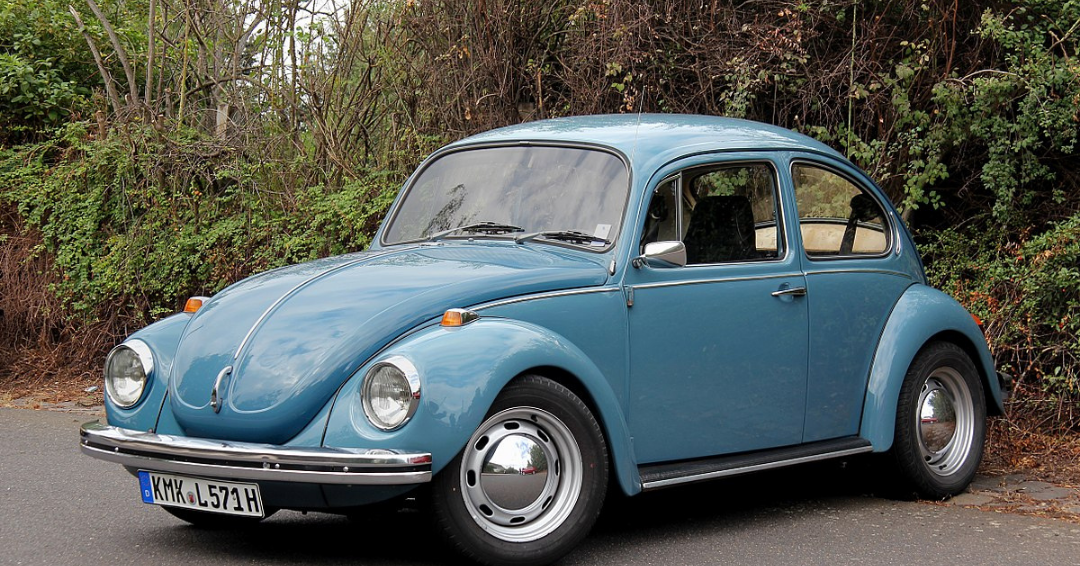


It is indeed rare to see a VW Beetle conversion, much more a RV conversion from a tiny Beetle car. June ’77 issue of Mechanix Illustrated magazine featuring the Super Bugger on the cover page The advertisement of the Super Bugger in the 1970s Keith Spelrum and his wife Glenna arrived at the 2016 summer car show with their 1975 Super Bugger And they even brought the June ’77 issue of Mechanix Illustrated where the Beetle RV was featured. They even had the original advertisement of the Super Bugger from the 1970s to help them explain about the car. Keith Spelrum and his wife Glenna politely entertained curious people who were very much interested with their unusual camper vehicle. There were about 1000 vehicles at the car show but the Super Bugger has attracted more attention than any other cars. Not until March 2016, when a couple showed up at a summer car show with their well-maintained Super Bugger. As for the Super Bugger, nothing has been heard about it after the 70’s. And the automaker company will be focusing in manufacturing electric vehicles instead.

In fact, Volkswagen has reportedly announced to discontinue the production of Beetle by July 2019. Through the years, automobile technology has introduced modern models that slowly killed off the Beetle design. There’s no room for a bed or a bathroom because it was only intended for camping, not a permanent residence. The panel provides just enough space for a tiny interior and a small kitchen. It features a fiberglass panel behind the front seats of the iconic Beetle car. The Super Bugger wasn’t actually a mobile home per se. The company called the camper conversion vehicle Super Bugger and rolled it out for $6,000. But did you know that even the classic Volkswagen Beetle can be converted into a tiny mobile home? In 1975, an innovative after-market company converted a 1970 VW Beetle model into a bug camper. Ideally, large vehicles can provide sufficient space for a comfy abode. For those who have a knack for DIY tasks, there’s also an option of transforming old vehicles like school buses into mobile homes. People can opt to buy luxury RVs or go for cheaper alternatives such as trailer homes. This is because tiny homes on wheels allow residents to experience a more adventurous life on the road. The speedometer goes all the way to 90 mph, which seems a bit… ambitious.Mobiles homes are the newest trend among home owners right now. It probably makes 40-50 hp, best suited to parades and car meets. Unfortunately, a vehicle of this size is probably not suited for long journeys, and the 1.6-liter flat-4 engine means you’ll struggle up hills and down highways. The lovely finned wheels are sure to attract a few nostalgic buyers as well. The Beetle body appears rust-free and is finished in teal paint, while the camper conversion also boasts some teal accents. It’s coming up for sale at the Mecum Houston auction in about a week. However, this one looks to be in mint condition. With a base price of $6,000, the Bugger doesn’t seem particularly affordable even by the standards of the era, but with the Beetle being as popular as it was, we’re not surprised to hear that almost 1,000 were sold.Īt one point, Beetles were so undesirable that you could buy one for $200, so many Super Buggers rusted away in junkyards. Yes, this was a DIY, though you could also buy it turn-key. A company in Costa Mesa, California promised you could turn any 1961 to 1977 Beetle into one of these things in just 60 hours. But somebody thought it was a good idea to have a Beetle camper with a tiny 1.6-liter. Usually, campers and RVs are moved along by big American V8s because you need a lot of torque to deal with that extra load, especially going uphill. Don’t listen to your mom, she loves cooking fish inside three square feet even when she’s supposed to be relaxing! Anyway, the segment was so big that it spawned oddities such as the Super Bugger, a camper conversion for the Volkswagen Beetle. Just take your Chevy or Ford work truck, strap the box to the bed, and take the kids to Yellowstone. America used to be in love with camper vacations.


 0 kommentar(er)
0 kommentar(er)
